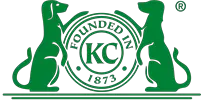Japanese Terrier History
The Japanese Terrier, also known as Nihon Ken, is a medium-sized, spitz-type, domesticated dog of the Japanese nation. Introduced to Japan in the Meiji Era, the ancestors of the modern JRT are believed to have descended from the German Spitz. However, they are more closely related to the Pomeranian and Yorkshire Terrier.
Japanese Terrier Physical Characteristics
The Japanese Terrier is a small, medium-size breed of terrier that typically stands between 12 and 16 inches at the shoulders and weights between 7 and 14 pounds. They have a small, compact body and a medium length, straight tail that is carried low. Their body is smooth and short. Their head is slightly domed and has a long, silky, flat, dark mahogany-red, dark brown, or reddish-brown coat that is parted down the middle of the back. Their face is wide with a scissor bite. Their eyes are usually dark brown.
Eye Colors
Brown
Nose Colors
Black
Coat Colors
White, Black, Pied
Height Range
Male Height Range: 8 – 13 inches
Female Height Range: 8 – 13 inches
Weight Range
Male Weight Range: 5 – 9 lbs
Female Weight Range: 5 – 9 lbs
Japanese Terrier Health
Description of breed health.
Lifespan
12-15 yrs
Japanese Terrier Health Concerns
Usually A Very Healthy Breed, Ear Infections, Patellar Luxation, Eye Problems
Japanese Terrier Temperament and Behaviour
The Japanese Terrier is a very athletic and energetic dog that is mild-mannered and friendly. They are persistent, fearless and curious, and tend to be very protective of their owners. They do well with children of all ages and with other dogs and animals.
Japanese Terrier Activity Requirements
The Japanese Terrier is a small, sturdy, and agile dog who was originally bred to hunt rats in grain stores. Today, they have evolved into companion dogs and show dogs. Japanese Terriers have beautiful, silky coats that tend to be on the long side. While they are not very active, they do love going for walks. The younger the dog, the more frequently they will need to go for a walk. An older dog may be able to go for long walks less often. Japanese Terriers are small and do not need much space, so a home with a small yard or an apartment will be just fine. They do need to interact with other people and with other dogs, so it is important to provide lots of opportunities for socialization.
Miles Per Day
8 miles
Activity Per Day
30 minutes
Daily Food
1 cups
Kennel Club Recognition

American Kennel Club
Recognized by the American Kennel Club
Japanese Terrier is part of the Foundation Stock Service group.
Visit the American Kennel Club website.

The Kennel Club
Not Recognized
Japanese Terrier is part of the Unclassified group.
Visit the Kennel Club website.

Australian National Kennel Council
Not Recognized
Japanese Terrier is part of the Unclassified group.
Visit the Australian National Kennel Council website.

Canadian Kennel Club
Not Recognized
Japanese Terrier is part of the Unclassified group.
Visit the Canadian Kennel Club website.